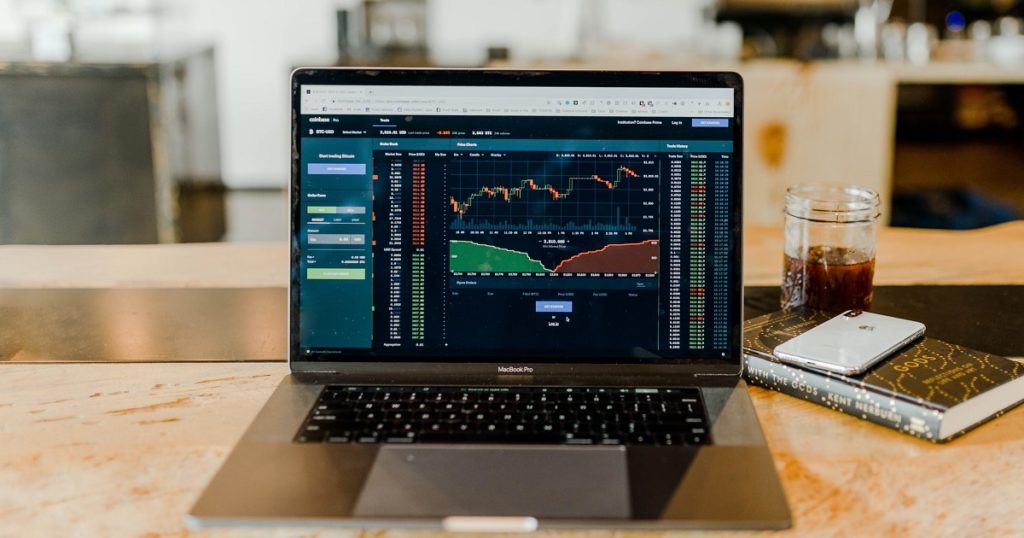
Stewardship is not about building a life of leisure but, rather, building a life of meaning.
Rich Abba, Holy Abba
Month: March 2021

Stewardship is not about building a life of leisure but, rather, building a life of meaning.
Rich Abba, Holy Abba

When teaching against the love of money and pursuit of riches, Christian rhetoric often leans on the ‘True riches vs Worldly Wealth’ theme. The message is certainly grounded in scripture and I would never dream of challenging this truth.
10 “Whoever can be trusted with very little can also be trusted with much, and whoever is dishonest with very little will also be dishonest with much. 11 So if you have not been trustworthy in handling worldly wealth, who will trust you with true riches?
Luke 16:10-11

This scripture is one hundred percent true and worthy of a study all on its own. However, this is not the scripture I want to examine today. Instead, I want to put the ‘True riches vs Worldly Wealth‘ rhetoric (not the Bible verse itself) under the microscope. It certainly is a noble sentiment; Christians should realize that Jesus and the true riches of his kingdom far outstrip earthly wealth. In fact, it is fair to say that any Christian should consider themselves the richest person in the world.
And yet…
While the above is all true, it does not help the single mom who is already holding down two jobs just to keep her children fed – and still coming up short most months. What her children really crave is her time and attention but these are luxuries she can’t afford to give them.
It does not help the Christian family facing foreclosure on their home because the main bread-winner recently lost their job in the economic down-turn.
Nor does it help the lady who was recently widowed and is now learning that she and her late husband are, in fact, drowning in debt – and after all those debts and funeral expenses are paid, she will have nothing left to live on.
In no way does this diminish the truth of Luke 16:10-11 – but to tell these people about True riches vs Worldly Wealth is little comfort and no more than an empty platitude.
Let’s consider…
14 What good is it, my brothers and sisters, if someone claims to have faith but has no deeds? Can such faith save them? 15 Suppose a brother or a sister is without clothes and daily food. 16 If one of you says to them, “Go in peace; keep warm and well fed,” but does nothing about their physical needs, what good is it? 17 In the same way, faith by itself, if it is not accompanied by action, is dead.
James 2:14-17
James teaches us to show our faith through our actions. Yes, there is a time to tell Christians about True Riches vs Worldly Wealth but, in those moments of deepest hurt, they need hope and practical assistance to carry them through.
I wish I could financially support every struggling parent, every homeless family and every destitute widow out there – but I simply don’t have enough to go around.
All I have to offer is what I have learned from personal experience and a few, by and large, untaught Bible verses that offer practical wisdom on how to break free from the bondage of financial struggle.
My hope is that this will offer many struggling believers – who find themselves in a place of financial bondage – a vision and hope for the future. That it may offer a way forward and equip them with the knowledge that they need to break free and overcome.
Better yet, I hope that this opens the eyes of many sincere believers out there. That they will see the predicament to which culture-driven attitudes toward money has brought them. I hope that this will show them a better way – the way of Stewardship – so that, if disaster strikes, they will be prepared with the necessary skills, resources and Biblical knowledge to weather the storm.
Obviously, I can’t offer all the answers to such a complex problem in a single post. But search this blog, read the articles and, if you have a question, Contact Me or ping me a Message me on Facebook.
God bless.

Seek first the kingdom of God — not a pay-check! This is the core message in Matthew 6:33.
Rich Abba, Holy Abba

Where there are no oxen, the manger is empty, but from the strength of an ox come abundant harvests.
Proverbs 14:4
If ever there was a verse illustrating Bible investment principles, this is it.
To understand Proverbs 14:4, we first need to understand what oxen were used for in Biblical times — and especially in the context of farming. In short, they did everything! Farmers used them to plough fields, thresh grain and grind flour. They also used them as beasts of burden and as draught animals to haul harvested crops or transport produce to markets where they could trade grain or flour for other commodities.
This verse leads with the fact that taking care of oxen is a messy business. Their food and water-troughs need to be replenished daily and cleaned on a regular basis. Furthermore, they make a mess. Their shelters need mucking and straw needs to be brought in, requiring constant care and attention. They may even get injured and require expensive medical treatment.
In Solomon’s day, many farmers might have been tempted to ignore Bible investment principles. They might opt to forego all of that pain and effort by choosing not to own any oxen at all. Where there are no oxen, the manger, or food trough, is empty (i.e. clean). Their barns would have a neat and empty manger, with no food to clean up and no floors to muck. No straw to fetch or carry and no animals to care for.
This reasoning may have seemed sound to a farmer, in Old Testament times. After all, their vision, when they acquired the farm, was to raise crops, not livestock. Filling food-troughs, mucking out barns and tending for sick animals was not what they signed up for.
But…
Such thinking went against Bible investment principles according to Proverbs 14:4. Why? Because it was short-sighted. Because oxen have the ability to plough orders of magnitude more land than a person on their own. As the proverb states, from the strength of an ox come abundant harvests. A pair of oxen could plow roughly one acre per day, allowing for a rich, large crop.
Without any oxen, a farmer would have to use a stick or shovel to break up soil. Alternatively, he could pull a plow himself. Either way, he would never come close to one acre per day. Nor could that farmer till the soil as deeply or consistently as he might with the oxen. In other words, without the oxen, a farmer would face season after season of back-breaking work in return for a very small crop.
As such, Proverbs 14:4 serves as a shining example of Bible investment principles.
What did the oxen offer a farmer? In a word — leverage!
An Old Testament farmer could increase productivity by acquiring assets, in the form of oxen, that were able to produce a harvest that he was unable to produce by the sweat of his own brow.
By taking the time to understand how to care for these beasts and, by being prepared to deal with the additional mess they might make, farmers were able to increase the size of their harvests exponentially. Yes, it meant that a crop-farmer would have to expand their knowledge-base in a new area (i.e. livestock), but the rewards far outweighed the additional cost of both effort and skill required to manage a pair of oxen.
So how might we apply the Bible investment principles of this verse in our own lives today? Let’s take a look at the types of “oxen” we might acquire in the modern economy — and then consider some of the common responses.

A rental property offers the ability to produce a passive income in the short term as well as capital growth over time.
However, this is the common response. ‘I don’t want the maintenance headache. You forever have to fix water tanks, heating, plumbing etc. It’s too much work!’
And what about, ‘Tenants make such a mess of your property! They’re always breaking stuff. And what about tenants who don’t pay their rent? I don’t have time to deal with all the legal aspects of evicting people!’
In response, Proverbs 14:4 says… Where there are no oxen, the manger is empty, but from the strength of an ox come abundant harvests.

Investment in stocks and shares can offer substantial gains. Depending on the shares you buy, they can also pay out dividends, usually once or twice a year, which you, the investor, can either use as additional income or reinvest in more shares, thus compounding your capital growth over time.
However, this is a common response. ‘Stock market investment is risky. All it takes is one crash and you could lose everything. I don’t want to spend my evenings and weekends reading the Financial Times or scouring the financial section of the newspaper.’
Or what about, ‘It’s too hard! I don’t have the energy to get my head around all those numbers. Do you know how much studying you would have to do before you understood enough to make that type of investment work for you?’
In response, Proverbs 14:4 Bible investment principles say… Where there are no oxen, the manger is empty, but from the strength of an ox come abundant harvests.
A business comes with its own set of risks but, if done right, it also offers massive opportunities. Some of the biggest financial gains are attributed to entrepreneurs who started their own company and / or acquired other companies along the way. A business can produce substantial income and can be sold, either as a whole or in part, for a massive pay-day.
However, the common response is, ‘Starting a business is a huge risk. Chances are you will work seventeen hours a day for zero pay. What if you go bankrupt? Employees are a pain to manage. They don’t care about your vision; they are lazy and call in sick at every opportunity. Some of them even steal from you. Running a business is a bad idea’
Or some might say, ‘You have no idea how much work it takes to run your own business. The learning-curve is massive! Just because you know how to make a burger doesn’t mean you know how to run McDonalds.’
The above is all true. A business can be a beast to run and maintain. But…
In response, Proverbs 14:4 Bible investment principles say… Where there are no oxen, the manger is empty, but from the strength of an ox come abundant harvests.

Of course, there are a myriad of other types of investment. These could include Intellectual Property investments such as:
Common objections here might be, ‘There’s no money in it. For every writer or musician that makes it big, there are ten thousand that don’t.’
… or what about other asset classes like:
Each of the above asset classes comes with its own risk/reward profile. Consequently, acquiring and managing each comes with its own demands and requires a specific skill-set.
By extension, each of these asset classes will raise a different set of common objections in the mind of the average “farmer” in the modern economy. Whatever your personal objections might be to any, or all, of these asset classes…
In response, Proverbs 14:4 Bible investment principles say… Where there are no oxen, the manger is empty, but from the strength of an ox come abundant harvests.

Each of the abovementioned “oxen” is a very different type of beast. Each requires a specific skill-set along with its unique learning curve. Each will require a different management strategy and each will place its own demands on your time and energy.
However, when cared for properly, from the strength of an ox come abundant harvests. Some of the above “beasts” may appear more daunting than others. You may look at one and simply say, ‘Never! That asset class is not for me. Not under any circumstances.’
That is okay.
But to consistently reject all of them is to say, ‘Where there are no oxen, the manger is empty.’ This is as short-sighted in the modern economy as it was when Solomon wrote this proverb. Because from the strength of an ox come abundant harvests.
By steadfastly refusing to acquire an ox, we tacitly agree to tilling the ground with a shovel or pulling the plough ourselves — and we will reap the equivalent harvest; in a word, small.
So what does a small harvest look like in the modern economy? To my mind, it looks like much of my working life. It looks like my parents and, frankly, most of my peers.
Waking up at five o’clock in the morning to leave the house at six. Facing a one-to-two hour commute to the office in grueling traffic or shoulder-to-shoulder on public transport. Spending eight-to-ten hours working in a job that I sometimes enjoy and, other times, hate. Either way, it is a job that has zero eternal value. Then enduring the reverse one-to-two hour commute back home… and doing this over and over; five days a week for the best part of fifty years!
In return for this, my harvest is a living wage. It pays the rent and covers the monthly bills. It puts food on the table and buys my Netflix or Amazon Prime subscription. This offers me an hour’s respite after making dinner and putting the kids to bed. Just as well because an hour of mindless TV is about the only thing I have any energy left for by the end of such a day. After that, sleep… so I can muster up the energy for my next five o’clock alarm call.
… all because I resolutely refused to acquire an ox. Oxen are messy and too much work. Go figure!
NOTE: This article should NOT be construed as investment advice. It is an illustration of how scripture supports the wisdom of investment, in general.

Better to be a nobody and yet have a servant than pretend to be somebody and have no food.
Proverbs 12:9

Give today — and plant seed for tomorrow. This is the whole secret to sustainable Kingdom-giving.
Rich Abba, Holy Abba

25 Therefore I tell you, do not worry about your life, what you will eat or drink; or about your body, what you will wear. Is not life more than food, and the body more than clothes? 26 Look at the birds of the air; they do not sow or reap or store away in barns, and yet your heavenly Father feeds them. Are you not much more valuable than they?
Matthew 6:25-26
In my opinion, this is one of the most misunderstood and misapplied verses in the Bible. I have heard this passage taught countless times, in church services, Bible studies and even in books specifically focused on what the Bible teaches about finances and the love of money.
And the message almost always goes the same way.
The above is all true — but this focus misses one important point;
Matthew 6:25 is not a warning against storing up riches! In fact, the entire passage (Matthew 25-34) never even mentions wealth or riches. Not once.
Rather, it refers to basic necessities. Food. Water. Clothing. Let’s look at vs 25 again. Therefore I tell you, do not worry about your life, what you will eat or drink; or about your body, what you will wear. These are the worries that Jesus calls out.
It is important because whenever we focus on the wrong aspect of a verse, we miss an opportunity for God to speak into our own lives and mould us into his image. By way of example, when I read this verse as it is generally taught in Christian circles, my thinking may go as follows:
… and then we let the entire passage blow right past us.
So we leave church satisfied that we have held up our lives against the mirror of God’s word and ticked the box on all counts. The Bible passage, while interesting and informative, did not reveal any shortcomings in our lives this week. We are doing okay.
I would submit that this is a very dangerous path to walk, as believers.
Now let’s focus on the verse from a “Basic Necessities” point of view. I will answer each question below honestly from my personal life and experience. Your answers may be different. But I urge you to consider each question and answer honestly for yourself.

(Author’s personal assessment)
Taking the pursuit of riches out of the equation, as this is not what Matthew 6:25 addresses, how might I consider this question?
The truth is, I spend almost every waking moment of my life working to earn money in order to support myself and my family. None of this is in the pursuit of riches; rather it is to ensure that I can provide for my family’s basic necessities like food, drink, clothing and shelter.
If I spend all of my time trying to earn money, who am I really serving? God or Mammon?
The answer to that question is a little scary for me. It gives me pause to thank God for his grace and shines a light on an area of my life that I should bring to Jesus and lay down at the cross.
Perhaps repentance is in order and maybe I need to consider how I can restructure my life to spend more of my time serving God and his purposes.

(Author’s personal assessment)
Once again, acknowledging that the pursuit of riches is not the context in which Matthew 6:25 is written, how might I think about materialism?
When I consider all the things I have acquired over the years and the bills I have currently racked up, I confess that part of the reason I head to office each day is to ensure that I earn enough money to pay for all the possessions I have acquired, many of them on credit. That makes me materialistic, by definition.
I have recently made some changes and reduced my monthly spending, learning to be content with what I have rather than always striving for more.
I don’t yet give as much as I know I should and I only recently began to acknowledge that all I earn is God’s and that I am a mere steward of those resources. I have begun giving more deliberately to God’s kingdom and also planting seeds for future harvest so that I can continue to increase my giving in the years to come — but I still have a long way to go.

(Author’s personal assessment)
Well — yes. It is probably the reason I have willingly chained myself to a desk in the office every working day these past twenty years. Job security is important to me.
In fact, if I am honest, clinging to job security is not the means of overcoming my financial anxiety. Rather, I do it because of my financial anxiety.
The cost of that anxiety has been a life spent largely in pursuit of making ends meet rather than in living out God’s will and purposes for my life. I want to change this going forward.
I feel God’s word challenging me to truly trust my heavenly Father for provision of my family’s basic needs rather than my employment contract.
Do I worry about what I will eat or drink, or wear? I guess I have to put my hand up.
… and now that I have held my life up to the mirror of God’s word and seen my image clearly reflected, I have the opportunity to grow in Christ.
What are your thoughts on Matthew 6:25 and how did you fare in answering the above questions? Check in with me on Facebook and let me know.
The above verses form part of a widely-known passage (Matthew 6:25-34) that culminates in the famous phrase, ‘But seek first his kingdom and his righteousness …’. It is well worth studying the entire passage as a whole rather than just the two verses covered in this article.
It is also worth noting that the preceding verse (Matthew 6:24) is all about God and Mammon, ‘No one can serve two masters…’.

Forsaking the pursuit of riches is easy. Forsaking pursuit of the mundane and ordinary requires true courage.
Rich Abba, Holy Abba

Time Poverty is all too common in first-world society. Hard-working people find themselves locked in the office or commuting for most of their waking hours each day, usually for at least five or six days a week. Many are forced to hold down two jobs just to make ends meet.
As such, many hard-working Christians may find themselves to be money-rich but time-poor. In other words, they manage to make rent or mortgage payments and pay their bills each month but they have little time for anything outside of work. This is Time Poverty
I would argue that Christians need to be time-rich. After all, Jesus has given us the keys to the kingdom! He has called us to share God’s love and preach the good news of the gospel to all the world.
And yet… all to often, we fail in this because we simply don’t have the time.
Sure, we could quit our jobs but this would simply change our lot from time-poor to money-poor. Not really a solution to the problem. So how should we escape this vicious cycle?
According to Wikipedia, marketing analysis suggests that significant differences in behavior and attitudes impact the buying habits of the following four groups of people:
As with so much in life, the lines of cause and effect often become blurred. By way of example, if someone moved from one of the above groups to another, the research shows that their buying habits are likely to change. By the same token, if someone changed their buying habits, they are equally likely to find that they will have moved from one group to another over time.
In other words, your lot in life determines your buying habits, just as much as your buying habits determine your lot in life. But here’s the good news. Changing your lot in life may be difficult – but changing your buying habits is easy. Painful, yes, but doable.

So how do we overcome Time Poverty as Christians? Let’s look at a real-world scenario.
Ben and Karen are a hard-working Christian couple with a typical money-rich, time-poor spending pattern. They make a decent living but they both spend twelve to fourteen hours each day either at the office or commuting between work and home.
They make their mortgage and car payments each month and, somehow, always manage to break even after paying all their bills. However they only manage this because both of them have reasonably high-paying jobs.
There is little money left for luxuries and even family holidays over the summer are generally paid for with a credit-card which they then pay off over several months. By the grace of God, they usually pay the card down just in time for the Black Friday run-up to Christmas.
Ben and Karen have a burning passion to minister to unreached people in the Amazon, Peru. They support some missionaries there through their local church but God has placed a deep desire in their hearts to actually go there and experience this ministry first-hand. A full trip would require ten weeks over the summer; time they can simply not afford to take off work. While they would love to spend ten weeks each year preaching the gospel in the Amazon jungle, it is simply not feasible. They are locked in Time Poverty. This is their lot in life.
Now, what if Ben and Karen made a slight adjustment to their spending pattern? Let’s assume they traded both of their cars, which are heavily financed, for two much cheaper vehicles which they could purchase for cash? This would immediately give them breathing room by removing two of their major monthly expenses.
Next, Ben and Karen use that saved cash each month to pay off their credit cards, quickly reducing their monthly expenses even further. After a year, having reduced their credit to zero, this couple now has a large amount of surplus cash each month. They dutifully save this over the next year.
At this point, Ben and Karen are tempted to spend their entire nest-egg on that trip to the Amazon but they recognize this temptation for what it is; a money-rich, time-poor spending pattern. It might just about cover the cost of one trip – if they reloaded the credit card to make up the balance and paid that off over the following year. It is not sustainable and will not achieve what God has called them to do.
Instead, they continue to save for two more years until they have enough to put down as a deposit on a rental property. The following year, their rental income coupled with their surplus earnings leaves them with enough cash to cover their normal monthly expenses for four weeks. Ben and Karen take one month of unpaid leave along with their standard two-week vacation and embark on their first six-week trip to Peru with their children over the summer.
It’s not the full ten weeks, but it is a start. Over the next few years, their rental property increases in value and they eventually remortgage and use the extra money to buy a second rental property. At this point, they begin to generate enough income from their property portfolio and surplus income to cover two months of normal living expenses. That allows them to take two months of unpaid leave each year which, coupled with their annual two weeks’ holiday, means they can now spend ten weeks each year on mission trips in the Amazon.
Ben and Karen now have a money-rich, time-rich lifestyle and this is, of course, reflected in their spending patterns. In fact, they embarked on that spending pattern the moment they traded in their expensive cars. It may have taken several years but their family’s move to a time-rich lifestyle was inevitable – as sure as night follows day.
In this story, Ben and Karen did not pursue riches; they pursued a Godly vision and exercised financial wisdom in pursuit of that goal. In the end, they were no better off financially than they had been in the beginning. The size of their income had not increased. Only the source of their income had changed, albeit slightly.
However, their family has moved from a time-poor to a time-rich paradigm. By exercising financial wisdom and keeping the vision before them, Ben and Karen are now living out God’s plan for their lives!

The plans of the diligent lead to profit as surely as haste leads to poverty.
Proverbs 21:5